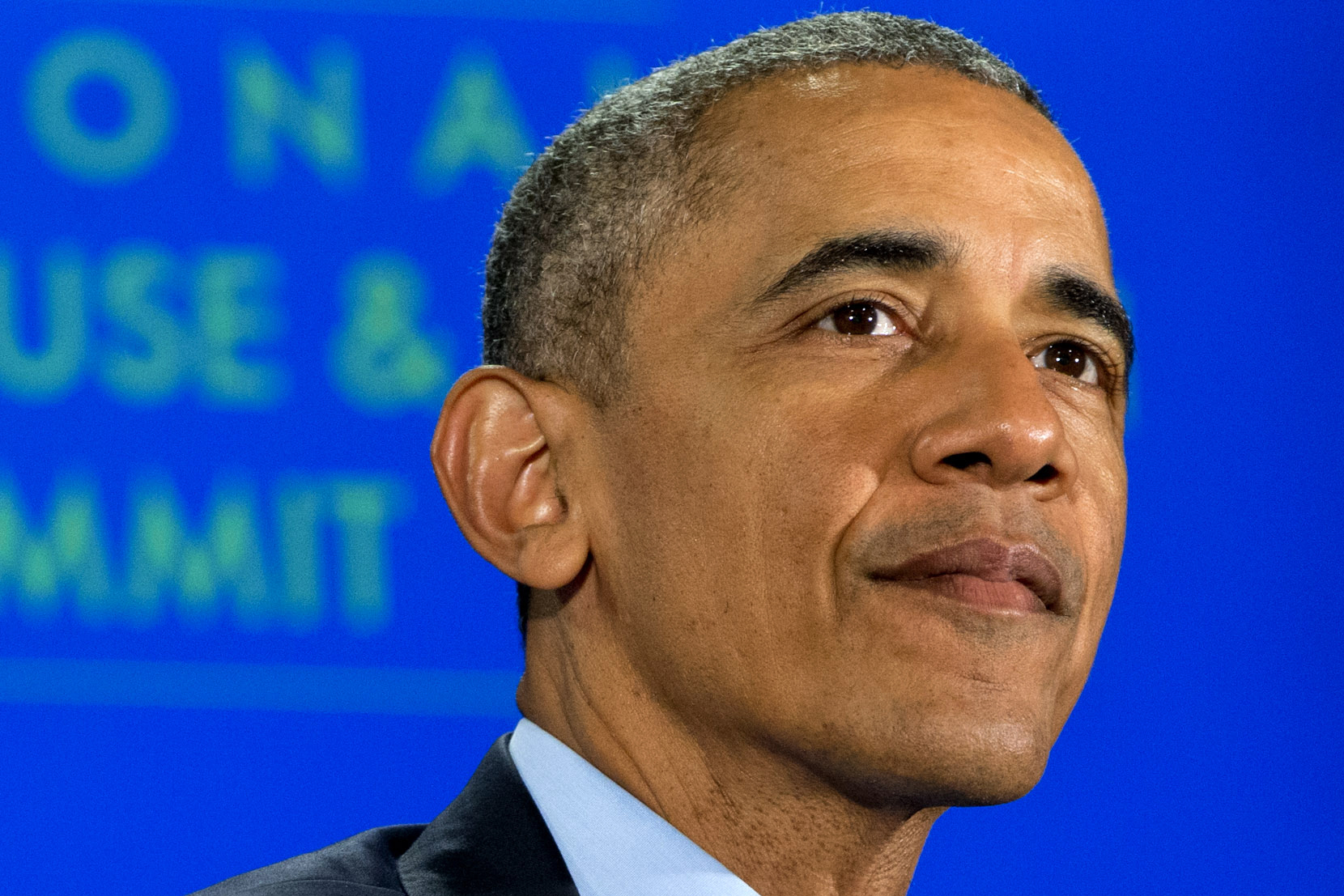
President Obama sat down with those on the front lines of the U.S. heroin and opioid epidemic on Tuesday for a frank discussion about the country’s addiction crisis, calling the issue critical to his role in protecting the health of the American people.
“When you look at the staggering statistics in terms of lives lost, productivity impacted, cost to communities, but most importantly cost to families from this epidemic,” Obama said. “It has to be something that is right up there at the top of our radar screen.”
The President addressed U.S. opioid abuse, which has grown during his two terms in office, at the National Rx Drug Abuse and Heroin Summit, a gathering of law enforcement, medical professionals, and treatment facilitators who’ve been impacted by addiction. Obama spoke on a panel for over an hour with two recovering addicts and two medical professionals, including moderator Dr. Sanjay Gupta. Since 2002, there has been a 286% increase in heroin-related overdose deaths, with a tremendous spike after 2010.
The tone of the afternoon discussion was both hopeful and bleak. Panelists Justin Riley and Crystal Oertle offered a glimpse of what’s possible when addicts have access to comprehensive recovery programs, but cautioned that integrating back into society can be difficult even once a recovery is underway.
“It’s great to hear the president say the ‘disease of addiction’ but there still is a stigma,” said Oertle, who advocates for recovering addicts. “I talk to a lot of people who are on probation. Their probation officers do not treat them like they have a disease.” The 35-year-old mother, who is a recovering addict herself, told the President she continues to feel judged and invalidated due to her struggle with drug abuse.
Others, including Baltimore City Health Commissioner Dr. Leana Wen, shared stories of adverse experiences addicts often have with both the medical and law enforcement communities. Wen said that as an emergency doctor, there have been times when a lack of resources has prevented her from delivering focussed addiction care and limited treatment to stopgap measures. “One of the worst feelings as a doctor is knowing you can’t help them,” Wen said. “What so many patients need is addiction treatment.”
Given the recent surge in heroin abuse, lawmakers on the state and federal levels have taken a renewed interest in reversing addiction trends. Last December, Congress passed a bipartisan budget agreement that allocated $400 million to fighting opioid abuse, a $100 million increase in funding. In February, President Obama proposed allocating $1.1 billion to fight heroin addiction over the next two years in his 2017 budget.
Tuesday’s event coincided with a White House announcement that the administration is taking new steps to confront abuse. Those measures would raise the a limit on how many patients doctors can prescribe a drug that aids in opioid addiction recovery and increase funding to community treatment programs. Sixty medical schools across the country also announced they will require students to take new courses on addressing pain in patients.
At the event, President Obama emphasized that treating addiction as a criminal issue and not a public health hazard has been counterproductive.“The fact is that for too long we have viewed the problem of drug abuse generally in our society through the lens of the criminal justice system,” the President said. “One of things that has changed in the opioid epidemic is that we’ve realized [addiction] affects everyone.”
He also took an opportunity to urge Congress to support his budget, saying more funding was needed to help provide recovery services. “It’s not enough just to provide the architecture and structure for more treatment. There has to be actual funding for the treatment,” the President added.
More Must-Reads From TIME
- The 100 Most Influential People of 2024
- The Revolution of Yulia Navalnaya
- 6 Compliments That Land Every Time
- What's the Deal With the Bitcoin Halving?
- If You're Dating Right Now , You're Brave: Column
- The AI That Could Heal a Divided Internet
- Fallout Is a Brilliant Model for the Future of Video Game Adaptations
- Want Weekly Recs on What to Watch, Read, and More? Sign Up for Worth Your Time
Contact us at letters@time.com